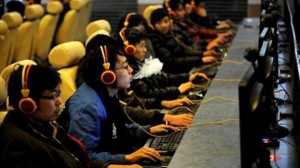It seems like journalists are no longer safe in China! On the 10th of this month (August), journalist Chen Baocheng was arrested by the local police for allegedly poking his nose in a land-confiscation dispute. And if not for the country’s Wiebo feed which is akin to Twitter, Chen’s arrest would have gone unnoticed.
The dispute in question occurred in a city called Pingdu in the Shangdong province in Northeastern China. The city is home to nearly 1.3 million people, and is one of the many cities in the country that is in loggerheads with the Chinese government over unlawfulland confiscations.
On the day of his arrest, Chen had posted an update in Wiebo about catching a suspect who apparently was part of a crew that had demolished his neighbor’s house the day before. As a media person who covered law enforcement and judicial news for the Caixin media group based in Beijing, Chen also posted about how he felt catching the suspect would probably land him in trouble with the local authorities, and that he may be arrested or detained. His post appeared in Weibo at 10 in the morning. By 3p.m., Chen was arrested.
However, like other cases that usually go unnoticed, Chen’s arrest and detention came into the limelight, thanks to the media and Wiebo. Several individuals stepped out in support of the journalist, with one user actually posting the words, “Pay attention to Chen Baocheng. Nowadays, if you belong to the powerless masses, your rights may be trampled by the public organizations at any time. In order to protect yourself, in order to give your offspring a fair and righteous future, we should help Chen.”
Chen’s arrest is not an isolated case. The recent months have seen several journalists in China being targeted by the police and local authorities for publicly voicing their concerns over the country’s expanding civil society movement. And it is only with the help of a social online community like Weiber that people across the country have started to sit up and notice these detentions and abductions.
The online forum has also enabled many people from around the country to connect with each other, thereby increasing social views and movements for the protestation of civil rights. More individuals have stepped up to confront the government and its questionable tactics. And not surprisingly, journalists like Chen seem to be the ones that are caught at the front of these confrontations
Another journalist called Du Bin was also detained on May 31, just days after he had published a book that brought into the light the response of Hong Kong to the Tiananmen movement. He had also made a documentary showcasing the inhuman conditions and torture faced by female prisoners in a re-education camp called Masanjia in the country’s Liaoning Province. Du was arrested days before the 24th anniversary of the ‘1989 Tiananmen crackdown’ on the pretext of disturbing social peace in the region, and was released only recently on bail (one year period). He, however, feels that he is still in danger, and that the authorities can pick him up whenever they want (and for whatever they want) during the one year bail period.
The list doesn’t end here. On August 7 this year, Song Yangbiao, an obstinate Maoist and a staunch supporter of Bo Xilai was detained after calling on the Chinese citizens to gate crash the politician’s trial. And earlier on August 2, veteran journalist Chen Min who is an active member of the New Citizen Movement was also arrested by the Beijing police for demanding that Xu Zhiyong, a human rights activist, be released.
The most recent crackdown has revealed a lot about the Beijing government’s suppressing ways and toleration towards those who demand more liberties and civil rights. It has also made many Chinese journalists consider their stand against the government, and has made them realize the need for a journalist alliance of some sorts to look after each other in times of trouble. In the absence of a press law that would protect them from the government and other opposing bodies, a journalist alliance would offer necessary protection for these journalists and help them fight their case with the help of lawyers in a legal manner.






